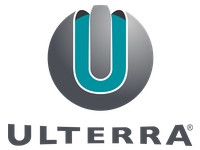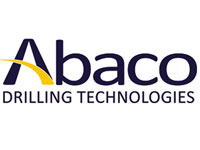AADE Houston FMG Meeting
When: May 22, 2025 @ 1:00 PM
Want to SPONSOR the FMG Meetings? The cost is $600 for the calendar year. Click Here to Sponsor!
REGISTER HERE
DATE: Thursday, May 22, 2025 - 1:30 PM - 3:30 PM
Check in begins at 1 PM
Check in begins at 1 PM
LOCATION: Norris Conference Center-CityCentre (Elm Room), 816 Town & Country Blvd. Suite 210, Houston, TX 77024. Corner intersection of IH-10 West and Beltway 8. For additional driving directions & a map, check their website at: https://norriscenters.com/houston-citycentre-map/.
COST: Member: Free to attend / Non-member: $15
Non-members have the option to join as a member or renew your membership before registering, then the meeting cost will be free as well as all subsequent DTC meetings for 2025.
Program Topic: “Formation Damage in Drilling, Stimulation, and Production”
SPEAKERS
1. Naima Spurr, Global Product Line Manager- Fracturing & Solvents – Baker Hughes
Presenting – “Novel Treatment of Formation Damage due to Condensate Banking”
Formation Damage due to condensate banking is a major issue in the Middle East, especially in tight gas reservoirs, where extraction of natural gas has led to deposition of condensate in the near-wellbore area. Production can decline very sharply. Successful field applications developed with alcohol treatments in deep tight sandstone gas wells have minimized the impact of such phenomenon on production and accelerated the post-completion flow-back operations. While these methods have been greatly beneficial, in many cases the treatments require reapplication after a short period of time. An innovative technology that provides remedial treatment and modifies the wettability of the formation to a near neutral state is introduced for application in the treatment of condensate banking. Such surface modifier, is covalently bonded to the reservoir rock, creating a robust engineered surface with low surface energy potentially leading to sustained production for extended periods of time.
Thorough lab testing and screening processes to determine an effective formulation were performed. In particular, the solvent package with the new active material was optimized to increase and maintain production for extended periods of time. Furthermore, compatibility studies between the new treatments and the highly saline formation water were performed. Core flow was used as the primary test protocol to determine the efficacy of this treatment for wells that are suffering from condensate banking.
Laboratory core flow testing, show that the new system provides simultaneously with remedial treatment and sustained production for extended periods of time. The results show that once the core is treated with this new technology, the bank cannot be re-formed and the condensate is produced after repeated cycles. These results show longevity of the treatment. This technology is applicable to both sandstone and carbonate reservoirs.
Dr. Naima Spurr is a Global Product Line Manager for fracturing and solvents. She has worked with Baker Hughes since January 2012. First in R&D and tech services than in product management since 2017. Prior to that she at Lynntech, a technology company where she developed cutting edge technologies for energy storage. Naima has a PhD in Material Science. She has over 25 patents and 60 publications.
2. Clark Harrison, Senior Technical Advisor – TETRA Technologies
Presenting – “Impact of Divalent Ions on Formation Damage Induced by Completion Brine and Mitigation Strategies in Oil and Gas Wells”
Completion brines are water-based solutions with soluble salts, used to maintain well control and prevent formation damage. The brine type depends on reservoir conditions, with densities ranging from 8.4 lb/gal to 20 lb/gal. Divalent salts like calcium chloride and calcium bromide are commonly used but can cause both beneficial and harmful effects on the formation.
Formation damage can significantly reduce reservoir productivity. Divalent ions (Ca²⁺, Mg²⁺, Sr²⁺, Ba²⁺, Fe²⁺) contribute to this through interactions that cause scale deposition and changes in wettability. Scale forms when these ions react with formation water anions (sulfate, sulfide, carbonate), precipitating water insoluble compounds like calcium carbonate or barium sulfate, which block pore spaces. Additionally, production can be hindered as divalent ions can increase the affinity between oil and the rock surface thus shifting it to a more oil-wet state. Furthermore, divalent ions can destabilize asphaltenes, forming emulsions and sludge that clog the formation.
This paper examines the impact of divalent ions on formation damage and explores mitigation strategies, including chemical inhibitors, controlled water injection, and ion-exchange treatments, to optimize production and minimize risks.
Clark Harrison brings over 35 years of combined technical and business experience in the reservoir drill-in and completion fluids sector. With deep expertise in fluid design and application, Clark has built a reputation for delivering effective, field-proven solutions through mitigating formation damage to maximize well productivity. His commitment to technical integrity and performance continues to guide his work as a Senior Technical Advisor at TETRA Technologies Inc., where he supports operations worldwide.
Clark holds a Bachelor of Science in Microbiology from Louisiana Tech University and is a graduate of the Executive MBA program at Rice University.
3. Amit Agrawal, Senior Global Technical Advisor – Halliburton
Presenting – “Formation Damage from a Hydraulic Fracturing Perspective”
Hydraulic fracture treatments are typically designed to produce some desired propped fracture length, of sufficient conductivity to economically drain a portion of the reservoir.
Frequently, post fracture pressure transient analysis indicates a much shorter fracture length than what was designed. One of the possible reasons for this shorter than expected fracture length is that while the proper fracture length was created and propped, the effective fracture length is much shorter due to poor clean-up of the fracture.
Poor fracture clean up can be the result of inadequate breaking of the frac gel, inadequate fracture conductivity for the formation permeability, inadequate formation pressure, water block, emulsion block or other mechanisms.
In this presentation various formation damage causes will be discussed along with consideration of stress shadow effect to maintain connectivity and conductivity of created fractures. Current industry practices and a case history to address formation damage post fracturing operation to sustain long term productivity in shale fracturing will also be discussed.
Amit Agrawal is currently working as Sr. Global Technical Advisor for the Production Enhancement Technical Service group at Halliburton Technology Centre in Houston.
Amit started his career 18 years ago with Halliburton Technology Center at Pune- India. He has worked within production enhancement technology and operations in various areas of Asia, Middle East, Europe and Africa before moving to the USA.
His current role keeps him engaged with the Halliburton’s global technical leads identifying solutions for various production enhancement or stimulation related activities which involves, Hydraulic Fracturing (Conventional / Unconventional), Sand Control, Acidizing, Water shut-off, Scale and Organic damage removal.
Amit holds master’s degree in chemical engineering from India.
Register Here.
Reservations are required!
Deadline for reservations is Noon, Wednesday, May 21.
Driving & Parking Instructions:
The Norris CityCentre facility is located at the corner of intersection of IH-10 West and Beltway 8. The location features plenty of complimentary parking.
IMPORTANT NOTE – For your convenience, we encourage you to park in the garage that is attached to the Norris Centers location (enter the parking garage from Beltway 8). Take the “up” ramp in the middle of the parking garage. You will see signs with the Norris name and logo directing you to the correct floors to park. Please note that a number of parking spaces are reserved for other tenants of the complex and have “reserved” signs identifying these spaces. There is plenty of parking, so please avoid parking in these reserved spots.
For additional driving directions & a map, check their website at: https://norriscenters.com/houston-citycentre-map/

Search AADE for PDF Files
© 2024 American Association of Drilling Engineers
Follow AADE:
This website uses cookies. By continuing to browse this website without changing your web-browser cookie settings, you are agreeing to our use of cookies. To learn more read our privacy policy.
Ok







